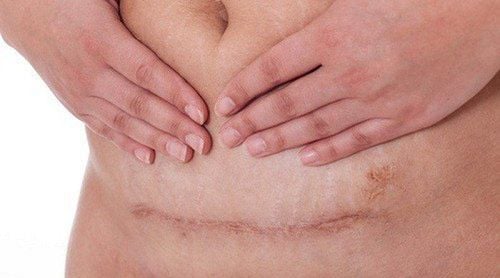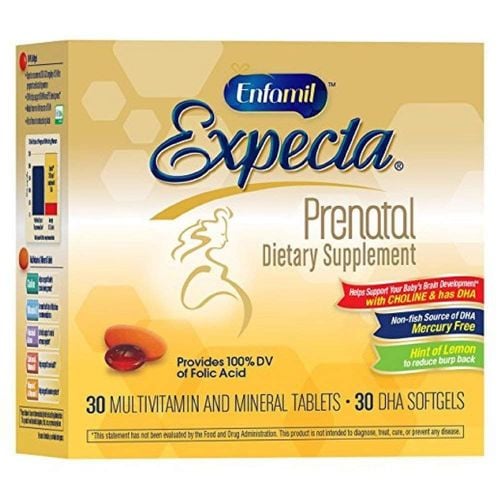This is an automatically translated article.
Supplementing with enough folic acid before and during pregnancy can help reduce the risk of birth defects in babies such as: Neural tube defects, congenital heart defects, cleft lips, cleft palate in children.
1. Why is folic acid important for pregnancy?
Folic acid is a B vitamin found in many supplements and fortified foods, it is the synthetic form of folate. Folic acid is used by the body to make new cells and produce DNA. It is also needed for normal growth and development throughout a person's life.
Folic acid supplementation is especially important during the period before and during pregnancy, as it is important for the development of the fetal organs.
Research shows that taking folic acid supplements before pregnancy can help prevent birth defects including neural tube defects like spina bifida, encephalocele and anencephaly.
Trắc nghiệm: Bạn có hiểu đúng về dấu hiệu mang thai sớm?
Các dấu hiệu mang thai sớm không phải chỉ mỗi trễ kinh mà còn có rất nhiều dấu hiệu khác như xuất huyết âm đạo, ngực căng tức,… Điểm xem bạn biết được bao nhiêu dấu hiệu mang thai sớm thông qua bài trắc nghiệm này nhé!
2. Health benefits of folic acid supplementation during pregnancy
In the United States, about 3,000 babies are born each year with neural tube defects. Normally, a baby's neural tube, spinal cord wall, and brain develop within 28 days of conception. Once the neural tube does not close properly, neural tube defects occur.

Anencephaly is a condition in which the brain does not develop normally. Infants once suffering from anencephaly cannot survive. If a baby is born with spina bifida or encephalitis, it can face multiple surgeries, paralysis and long-term disability. According to a 2015 review of studies, maternal folic acid supplementation significantly reduced the risk of congenital heart defects. These defects occur in 8 out of every 1,000 babies born in the United States each year.
According to the American Heart Association, congenital heart defects occur when the heart or blood vessels do not develop normally before birth. They can affect the inner walls of the heart, the heart valves, or the arteries and veins of the heart. Research also shows that taking folic acid supplements during early pregnancy can help prevent cleft lip and cleft palate. These birth defects happen if parts of the mouth and lips don't come together properly during the first 6 to 10 weeks of pregnancy, and this usually requires one or more surgeries. to correct the condition.
3. The amount of folic acid needed before pregnancy
The minimum recommended daily intake of folic acid for all women of childbearing age is 400 micrograms (mcg), or 0.4 milligrams (mg). According to the Centers for Disease Control and Prevention, taking folic acid supplements at least a month before conception reduces the risk of neural tube defects like spina bifida by up to 70%.During pregnancy, the recommended amount of folic acid for each woman is between 600 and 800 mcg, or 0.6 to 0.8 mg. Of course, this amount depends on the needs of each person. If you have a family history of neural tube defects, you should take a daily supplement of 4,000 mcg (4 mg) of folic acid and talk to your doctor about how much folic acid you need before and after you conceive.

You can buy folic acid supplements from pharmacies or you can just take a prenatal multivitamin. If you take a multivitamin, make sure it doesn't contain more than the recommended daily dose, i.e. no more than 770 mcg RAE (2,565 IU) of vitamin A, unless it's all in the form of beta-carotene.
Excessive intake of a certain vitamin A can cause birth defects. If you're not sure what kind of supplement you should take, ask your doctor or health care professional to advise you on what kind of supplement to take.
Folic acid is a water-soluble vitamin, so the body will eliminate excess if you consume too much. However, for some women, consuming too much folate can mask signs of a B12 deficiency, which is common among vegetarians. Ask your doctor if you think you may be at risk for this problem.
Many prenatal vitamins contain 600 mcg of folic acid. Taking folic acid only after finding out you're pregnant may not be early enough because many women don't realize the signs they're pregnant until six weeks or more after conceiving. Meanwhile, neural tube defects can occur during the first month of pregnancy, often before you even realize you're pregnant..
If you already have a child with a neural tube defect then you You will need a higher dose of folic acid in the months leading up to your next baby's pregnancy and during the first few months of your pregnancy. You should see your doctor for more advice on the right dosage. In addition, the following groups of people also need a higher dose of folic acid:
People with kidney disease and on dialysis People with sickle cell disease People with liver disease People who have a habit of taking more than one Daily alcoholic beverages People who are taking medication to treat epilepsy, type 2 diabetes, lupus, psoriasis, rheumatoid arthritis, asthma, or inflammatory bowel disease.
4. Is it possible to get enough folic acid from food?
Some foods are fortified with folic acid, including cereals, rice, orange juice, pasta.
In the early stages of pregnancy, many people experience morning sickness, so it is difficult to fully absorb the necessary folic acid. To make sure you're getting enough folic acid, your doctor usually recommends taking a folic acid supplement or a vitamin containing folic acid before and during pregnancy.

If you are planning to become pregnant, consider taking a prenatal vitamin. Talk to your doctor about taking the right dose of prenatal vitamins because taking too many supplements can be toxic to your unborn baby. You should also include folic acid-fortified foods in your diet.
In addition, to prepare for a healthy pregnancy, both husband and wife should check their reproductive health 3-5 months before becoming pregnant.
The wife should:
Get vaccinated before pregnancy (especially against rubella because rubella in pregnancy is extremely dangerous ) Genetic testing to screen for genetic diseases before pregnancy Check for secondary infections In particular, women over 35 years of age, if they want to become pregnant (especially if they have never been pregnant), will have to have a very detailed health check because pregnancy at this age often problems: Ovarian failure, premature birth, higher risk of birth defects, placenta previa, preeclampsia. The husband should:
Check reproductive health, detect diseases of testicular atrophy, physiological weakness, weak sperm... Sexually transmitted diseases, especially those that cannot be cured, are extremely dangerous. Vinmec International General Hospital currently has many comprehensive health care programs for couples, pregnant mothers and their unborn babies, including basic pre-marital examination packages, advanced pre-marital examination packages, package maternity program. Vinmec has a team of experienced doctors in the fields of obstetrics and gynecology, IVF, stem cells, gene technology, capable of synchronously and comprehensively deploying the most advanced assisted reproductive techniques today.
For specific information about fertility and maternity packages at Vinmec, please contact the hospitals and clinics of Vinmec health system nationwide.
Please dial HOTLINE for more information or register for an appointment HERE. Download MyVinmec app to make appointments faster and to manage your bookings easily.
Reference source: babycenter.comMORE
Folic Acid (Vitamin B9): Should be taken before pregnancy Guidelines for multivitamins and folic acid supplements for pregnant women Pregnant women should not take iron and calcium at the same time













